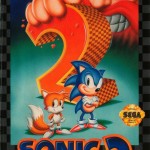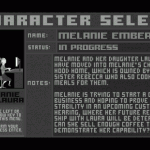When Games Matter is a weekly exploration by Drew Dixon of meaningful moments in games. Operating under the assumption that games do in fact matter, Drew seeks to highlight those moments that have much to say about who we are and the world we live in.
I wrote a column this week titled “The Wasted Potential of Videogame Violence” for Relevant Magazine. Videogames are unique in that the provide us with the opportunity to adopt a sense of agency over the world, our character, and the progression of the narrative. That said, I feel there is a pretty large hole in the realm of how videogames tend to handle violence. Sadly Christians haven’t had much constructive to say about the subject.
The videogame industry has done an excellent job of keeping “Mature” games out of the hands of minors. However, the average gamer today is 37 years old–so when Christians default to talking about the effects of videogame violence on children they are neglecting an important discussion on violence in videogames as an art form.
We live in a world that is plagued by violence and whether they are tangible or not, there are always consequences for violent behavior–even if its justified. What I would like to see from the games industry is violence as it truly is. Violence with strings attached even if those strings are psychological.
Our very own Rich Clark recently wrote:
Consider those games that seek to present us with a true hero. Half Life 2‘s silent protagonist, Gordon Freeman, represents a noble cause to be sure. But what kind of a hero runs around smashing open crates that belong to others while people are trying to explain something of great importance to him?
When it’s most evident that we are a part of a story that’s bigger than us, we turn sociopathic, destroying everything we can get our hands on and haphazardly shooting things across the room with a gravity gun.
We can get away with this. So we do.
Rich is picking up on something here that is prevalent in many AAA games today–many of them let us get away with non-stop violence and destruction and walk away unscathed.
In my many discussions with people about my article I have had people bring up examples of games that do what I am wishing for–confront you with the consequences of your violent actions. When I originally wrote the piece for Relevant I included the best example I have experienced of a game that does this but unfortunately I ended up having to cut that portion.
There are certainly moments in games when violence is handled honestly but I think these moments are rare. Additionally many of the games suggested as examples of nuanced takes on violence actually only reduce violence to some arbitrary morality or karma scale. As if the game itself is serving as some sort of god-figure pronouncing judgment on your actions (think Fallout 3 or Fable). Life doesn’t provide us with such black and white feedback and whose to say the standard by which the game is judging us is right?
I didn’t write this column to rail against the videogame industry–I simply want to be one small voice in its midst asking for more. I will keep playing the Half-Lifes and the Battlefields of the world but I’d just like to see more games become a little more self aware.










